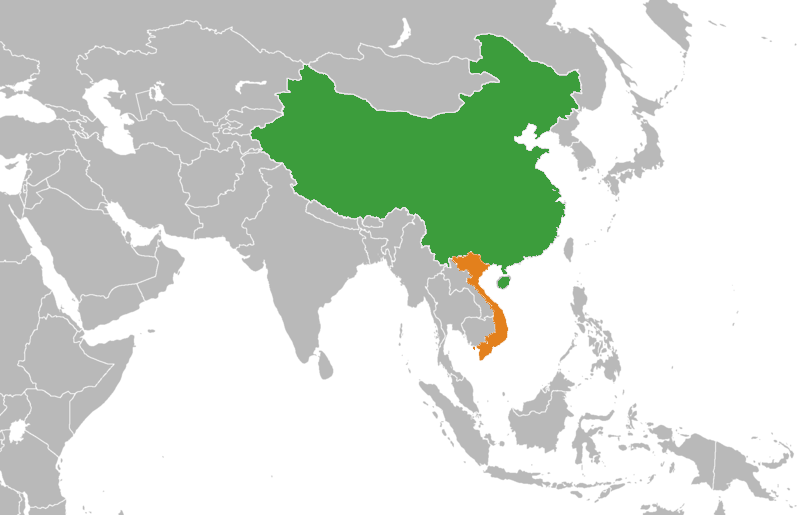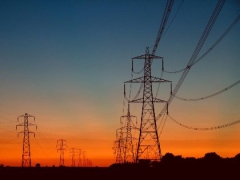Less capital means more Chinese-sourced power
| TuoiTre news | Aug 10, 2012 15:59 pm
Capital shortages for electricity infrastructure could also be one of the reasons why the Electricity of Vietnam Group (EVN) has had to increase power purchase from other sources, including China, in the first seven months of this year.
The Ministry of Construction has said that work on many electricity projects of EVN and the Vietnam National Oil and Gas Group (PetroVietnam) cannot continue due to a capital shortage from investors, newswire Vnexpress reported.
In the first seven months of this year, EVN bought 36.78 billion kWh of electricity from outside providers, accounting for 56.1 percent of the total output, said EVN.
It bought 1.571 billion kWh from neighboring China, EVN said in its report on business and production performance in January-July.
In July alone, EVNs electricity supply for households and production was sufficiently maintained at a total 10.38 billion kWh, of which, power production was 5.551 billion kWh, accounting for 53.5 percent.
Cumulatively, in the first seven months of this year, EVNs electricity production and purchases were 69.097 billion kWh, rising 11.2 percent over the same period last year.
Specifically, electricity production was 30.315 billion kWh, making up 43.9 percent of its total output.
According to EVN, as expected, this month the load of the power system is able to reach up to 348 million kWh per day, and the largest capacity would range around 19,000-19,300 MW.
Also this month, the groups electrical system operation target is to exploit hydropower plants such as Son La and Hoa Binh to ensure safe operation of the grid.
Well-paid for pricier power
Vietnam is currently buying electricity from China at the price of 1,300 dong/kWh (6.08 US cents), while the electricity price from local small hydropower plants is about VND800-900 dong/kWh; coal-fired thermo power plants at VND1,280-1,300 /kWh; and oil-fuelled power plants at VND5,500-6,000/kWh, said the Ministry of Industry and Trade in early June.
In 2011, Vietnam bought electricity from China at the price of 5.8 US cents/kWh.
With the new pricing mechanism, electricity prices from China are higher than the electricity prices from local small hydropower plants by VND400-500 /kWh.
Vietnam started buying electricity from China in 2004, and the annual electricity import volume from China has reached about five billion kWh.
In the first five months of this year, Vietnams electricity purchase from China was over 1.16 billion kWh, according to the ministrys data.
An electricity purchase contract with China is signed once per five years, and the electricity price is calculated by Chinese partners.
Earlier, many local small and medium hydropower companies said that EVN is buying electricity from local plants at extremely low prices, causing losses and even bankruptcy for local businesses.
Therefore, in the ministrys press conference in May, the ministrys leader allowed EVN to increase the electricity buying price by an additional 5 per cent from 2011 for 10 small hydropower plants with capacity of less than 30 MW.
Ongoing power projects account for 40 per cent in planning and 75 per cent of the capacity of the whole sector, said the ministry.
A long way for a comprehensive competition
Vietnam aims to follow a competitive power market model by the end of 2022, said Minister of Industry and Trade Vu Huy Hoang.
EVN currently holds a monopoly in electricity transmission and distribution. Other groups such as PetroVietnam, Vinacomin and Song Da Corporation have joined EVN to generate electricity.
This monopoly affects the competitiveness of power plants and the motivation for development of the power sector and the interests of consumers, Hoang said, adding that the government has introduced a roadmap to abolish the monopoly in the electricity industry.
Vietnam is scheduled to begin operating a competitive model in electricity generation from July 1 of next year, after pilot programs are carried out.
Then, the nation seeks to carry out competitive wholesale and retail electric energy markets by 2014 and 2022, respectively.
Previously, EVN said that in 2010-2011, it had to buy electricity at high prices and use oil for electricity production due to increasing demand and unfavorable weather conditions. This brought a total loss VND11 trillion ($529 million) to EVN.
As of December 31, 2011, EVNs total audited loss due to forex rate fluctuations was VND26 trillion ($1.25 billion).










